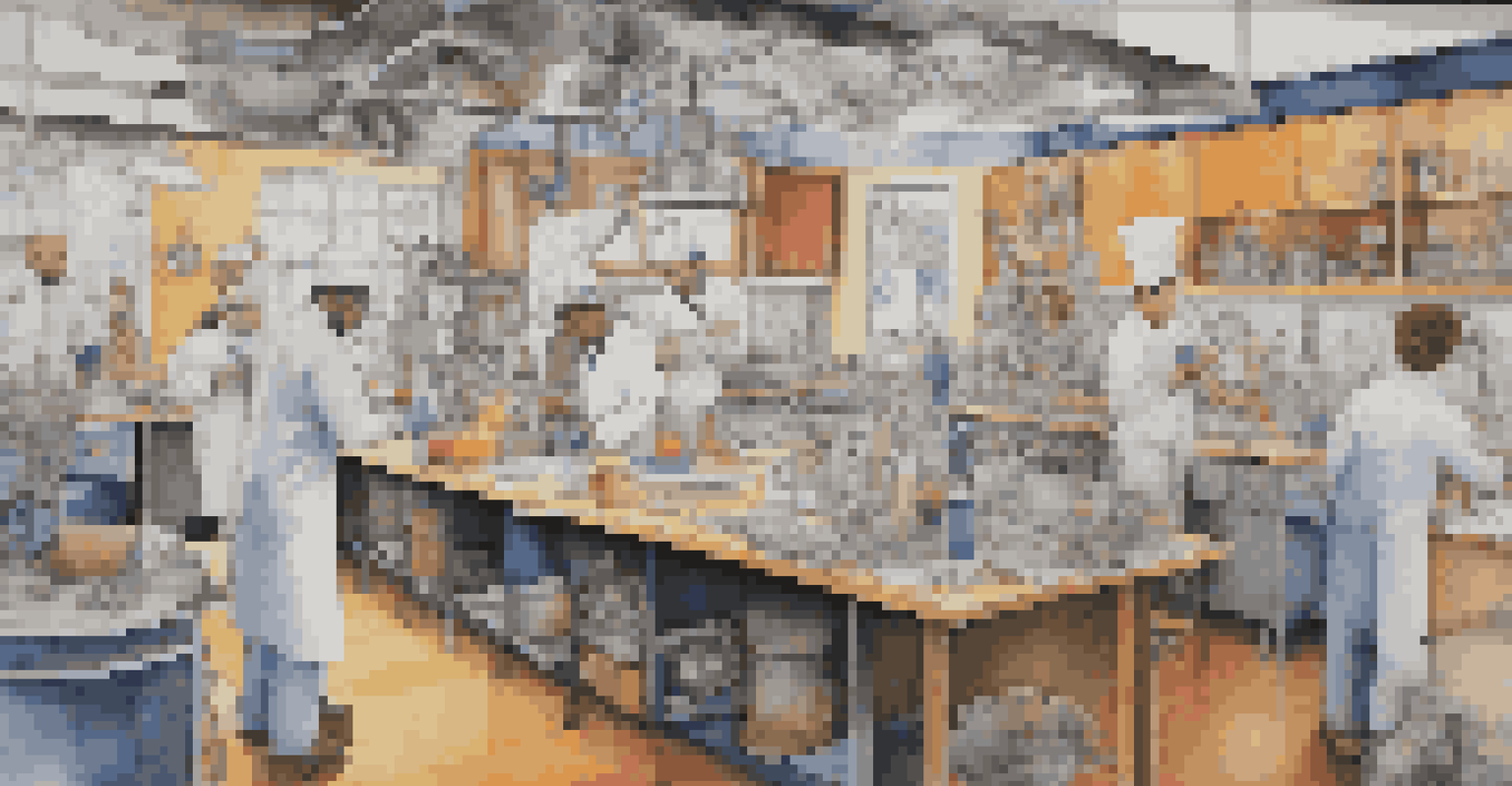Internships and Job Shadowing: Complementary Career Paths

Understanding Internships and Job Shadowing
Internships are structured work experiences that allow individuals to gain hands-on skills in a specific field, often while still in school. They can be paid or unpaid and typically last a few months. On the other hand, job shadowing involves observing a professional on the job to understand their daily tasks and responsibilities, without the expectation of active participation.
Internships are the best way to get experience and learn about a new industry.
Both experiences can provide valuable insights into different career paths, helping students and job seekers make informed decisions about their futures. Internships often require more commitment, while job shadowing is usually a shorter, more flexible arrangement. However, both play a crucial role in bridging the gap between education and the workforce.
Ultimately, understanding these two options can empower you to choose the right path for your career aspirations. Whether you’re looking for hands-on experience or a glimpse into a day in the life of a professional, both avenues offer unique benefits.
The Value of Internships in Career Development
Internships provide an excellent opportunity to build practical skills and apply classroom knowledge in real-world settings. They allow individuals to dive deeper into their chosen field, gaining insights that textbooks can't offer. Moreover, internships often lead to networking opportunities that can be crucial for future job searches.

Employers frequently look favorably upon candidates with internship experience, as it demonstrates initiative and a commitment to learning. A successful internship can even lead to a job offer, as companies often prefer to hire interns who have already proven themselves. This experience also helps you refine your career goals and understand what you truly enjoy doing.
Internships Enhance Career Skills
Internships provide hands-on experience that allows individuals to develop practical skills and grow their professional network.
In short, internships can significantly enhance your resume and give you a competitive edge in the job market. By investing time in an internship, you’re not just gaining experience; you’re also paving the way for your future career.
Job Shadowing: A Gateway to Career Exploration
Job shadowing is a valuable tool for exploring different career paths without the long-term commitment of an internship. It allows you to observe professionals in their natural work environment, which can provide clarity about what a job really entails. This firsthand experience can help you gauge whether a particular career aligns with your interests and skills.
Job shadowing is a great way to see if a career is right for you before you dive in.
The informal nature of job shadowing makes it accessible to many people, including students and those considering a career change. It typically involves just a day or a few hours, making it a low-pressure way to learn about various roles. This experience can also lead to important connections in your industry of interest, which can be advantageous down the road.
Ultimately, job shadowing can be the perfect stepping stone for those unsure about their career direction. It offers insights and clarity that can help you make more informed choices about your future.
How Internships and Job Shadowing Work Together
While internships and job shadowing serve different purposes, they complement each other beautifully in the career exploration process. Internships provide the depth of experience and hands-on learning, while job shadowing offers breadth by exposing you to various roles and industries. Together, they can furnish you with a well-rounded perspective on your career options.
For instance, you might shadow a professional to gain insights into their daily tasks before committing to an internship in the same field. This way, you can ensure that the internship aligns with your expectations and career goals. Conversely, an internship can deepen your understanding of a job you’ve previously shadowed, reinforcing your commitment to that path.
Job Shadowing Offers Career Insights
Job shadowing allows individuals to observe professionals and gain a clearer understanding of different career paths without long-term commitment.
In essence, leveraging both experiences can maximize your career development. Each experience enriches the other, allowing you to navigate your career journey with greater confidence.
Finding the Right Opportunities for Internships
Finding the right internship can sometimes feel daunting, but there are many resources available to help you on your journey. Start by exploring your school’s career center, which often has listings for internships tailored to students. Additionally, websites like LinkedIn, Handshake, and Indeed can be treasure troves of opportunities across various industries.
Networking plays a vital role as well; don’t hesitate to reach out to family, friends, or professors who may have connections in your desired field. Informational interviews can also be a great way to learn more about potential internships and make valuable contacts. Remember, the more proactive you are in your search, the more likely you are to find an opportunity that aligns with your career goals.
Ultimately, persistence is key. Even if the search feels overwhelming, there are countless internships available, and with the right approach, you can find one that suits your aspirations.
Preparing for a Job Shadowing Experience
Preparing for a job shadowing experience can enhance the value you gain from it. Start by researching the company and the professional you’ll be shadowing, as this can help you formulate insightful questions. Understanding the basics of the industry will also allow you to engage more meaningfully during your time there.
Once you’re there, be attentive and take notes. Observing details about the work environment, team dynamics, and daily responsibilities can provide you with a wealth of information. Don’t hesitate to ask questions about anything you’re curious about; most professionals appreciate the interest and are happy to share their knowledge.
Combine Experiences for Success
Leveraging both internships and job shadowing can provide a well-rounded perspective, enhancing career exploration and development.
In short, preparation is essential to making the most of your job shadowing experience. By approaching it with curiosity and a willingness to learn, you can gain insights that will aid you in your career journey.
Making the Most of Your Experience
Whether you’re interning or job shadowing, making the most of your experience involves a proactive attitude. Take the initiative to ask questions, seek feedback, and engage with your colleagues or mentors. The more you immerse yourself, the more you will learn and grow professionally.
After your experience, reflect on what you’ve learned and how it aligns with your career goals. This reflection can help reinforce your interests and inform your next steps, whether that’s pursuing further internships or considering full-time job opportunities. Keeping a journal can be a useful tool for tracking your progress and insights.

Lastly, don’t forget to express gratitude. Sending a thank-you note to your supervisor or the professional you shadowed can leave a lasting impression and potentially open doors for future opportunities. By valuing your experiences, you set the stage for continued growth in your career.